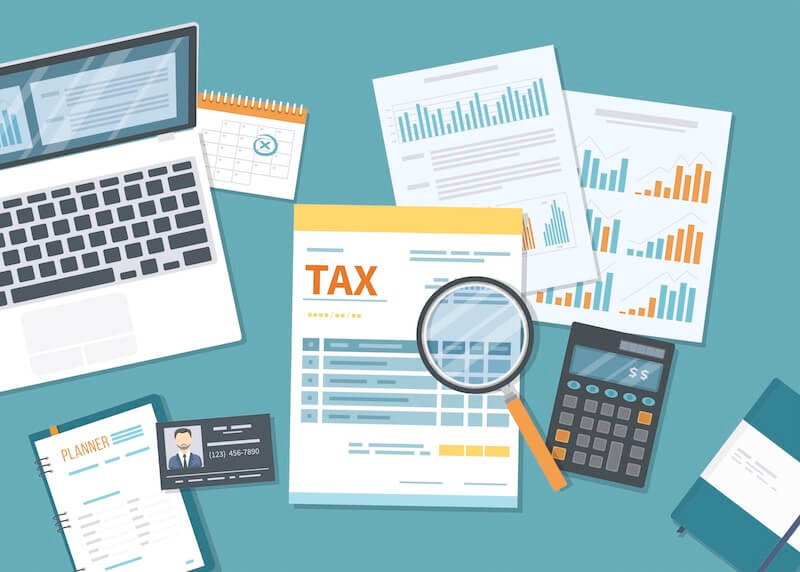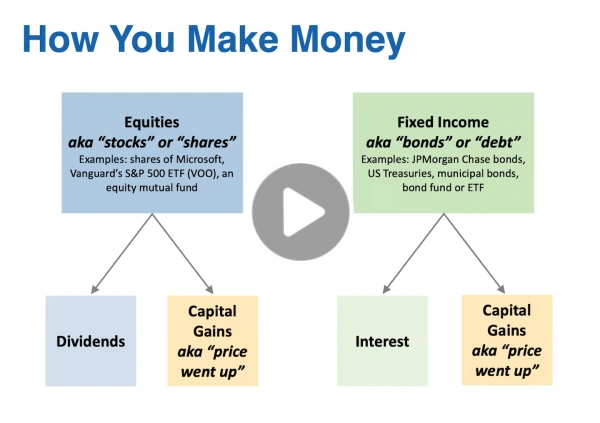Many people are aware that life insurance has tax advantages, but they sometimes misunderstand the tax laws around insurance, resulting in a surprising tax bill. The death benefit paid out from life insurance usually isn’t taxable, but some scenarios can result in considerable tax implications, including large estates, certain transactions involving policies with cash value, and taking a death benefit in installments. Learn the top 5 things you need to know below.
#1 Life insurance is treated differently for income tax versus estate tax
The death benefit paid by a life insurance policy is tax-free when it comes to income taxes. Your beneficiaries will not have to pay any income taxes on the death benefit they receive.
However, the death benefit of a life insurance policy is subject to estate tax. Does that mean your beneficiaries will have to foot an estate tax bill? Only if you have a “taxable estate,” or an amount of assets in your estate that is above certain thresholds set by the US federal and/or your state government.
Most people are not subject to US federal estate taxes today: no estate taxes are due at the federal level until an individual has more than $13.98 million assets in their estate (in 2025). However, 17 states plus Washington, D.C., have an estate and/or inheritance tax, and the estate taxes kick in at much lower thresholds than federal estate taxes. It is a good idea to check if you might have a taxable estate in Do I Have a Taxable Estate?
#2 Different tax rules apply for cash value than the death benefit
Many permanent life insurance policies (whole life, universal life, variable life, etc.) have cash value, which is the value from your life insurance policy that you can access while you are alive.
Cash value withdrawals are subject to income tax once you take more out of the policy than the amount you paid in. The amount you paid in is called your “cost basis” or “policy basis.”
Here’s an example:
You pay $10,000/year into a policy with cash value for 20 years. The total amount you have paid in is your “cost basis”—$200,000 ($10,000 * 20).
Five years after your final payment (25 years into the policy), the policy’s cash value is $380,000. Can you just pull out the $380,000 tax-free because it’s life insurance?
No. You could withdraw the $200,000 you put in without owing any taxes, but if you withdrew the full amount of $380,000, you’d owe income tax on the $180,000 in gains.
Partial surrenders
Many policies permit partial surrenders, meaning you take out some, but not all, of the cash value. Sometimes people will use the strategy of completing partial surrenders, up to the amount of the policy’s cost basis, to avoid paying income taxes on any gains on their policy while accessing the cash value. If they want to access any of the gains in their policy, they generally take a policy loan, since using partial surrenders to access gains would result in income tax coming due on the gains.
Loans against cash value
To access the cash value of your policy, you can also take a loan against the policy’s cash value (from the insurance company). Neither taking the loan nor paying back the loan will create any tax issues, except in one key scenario.
If you were to take a loan and then let your policy lapse, you can get into a world of tax complication. You will owe income tax on the difference between your total cash value (before subtracting the amount of the loan) and your cost basis. This is how the IRS prevents a huge tax loophole, whereby you could avoid paying tax on the gains on the cash value of your policy by simply borrowing against your policy and then not paying the loan back.
On top of that, you will not actually get the full cash value back; you will get the cash value minus the loan. You can easily understand that the insurance company will make sure it pays itself back before giving you back any remaining value. You could find yourself in a situation where you are getting little to no cash back but owe a sizable tax bill.
Here’s an example:
You have a policy with cash value of $100,000. You paid $40,000 in premiums into it, so your cost basis is $40,000, and your gains are $60,000. Let’s imagine you stop paying premiums, take some loans from the policy, and no one is really paying attention to what is going on. The loans (what you drew plus unpaid premiums) soon equal $100,000, the same amount as your cash value. Rather than pay the loan back, you let the policy lapse. The IRS will send you a bill for income tax on the $60,000 in gains. And how much will you get back from the insurance company in this example? $0. Because all of your $100,000 cash value went to pay back the $100,000 loan you took out from the insurance company. Nothing was left over to refund you, but you still have to come up with the cash to pay income tax on the $60,000 gains ($13,200 in a 22% tax bracket).
If you want to access the cash value of your policy, it is important to be thoughtful about potential tax implications, both today and in the future. The right strategy depends on your needs and your policy’s rules, but it is always a good idea to be aware of any tax consequences.
#3 Death benefits taken in installments are taxed only on gains
Death benefits can be paid out in either a lump sum (the full benefit all at once) or in installments (part of the benefit paid at regular intervals for a certain number of years).
Lump sum payments of the death benefit are not taxable as income but are subject to estate taxes, as described above. If you choose to take the death benefit in installments instead, then you will owe some tax, but only on the portion that is investment gains. The base death benefit will still be free from income taxes.
For example, say that the life insurance company offers you a choice between:
- $1,000,000 lump sum
- $5,550/month for 20 years
$5,550 * 12 * 20 = $1,320,000, which is more than the $1,000,000 death benefit. What’s going on there? You’re earning interest. You will owe tax on the interest earned, but not payment of the death benefit itself.
This is a similar tax situation as if you chose the lump sum, and then put the money in your own account. You would still pay taxes on any interest or investment gains you earn on it.
#4 Viatical settlements and life settlements are taxed differently
A viatical settlement is when a terminally ill person sells their life insurance policy to a qualified buyer, and it offers special tax advantages. As a general rule, the proceeds of the sale in a viatical settlement are tax-free, because they are considered to be an advance of the death benefit. The IRS and insurance regulators have specific requirements about what qualifies an insurance policy sale as a viatical settlement. If you’re considering a viatical settlement, it’s definitely a good idea to work with a tax advisor who understands viatical settlements.
A life settlement is the sale of an insurance policy that does not qualify as a viatical settlement, oftentimes because the person choosing to sell their policy is not terminally ill. With a life settlement, there is no tax on your policy’s cost basis, you pay income tax on the difference between cost basis and cash value, and you pay capital gains tax on any amount above the cash value.
#5 Employer provided policies: premiums are partially taxable
If you receive life insurance coverage through work that you do not pay for (your employer pays the premiums), the premiums related to any coverage above $50,000 are usually taxable to you as income. To be clear, these are usually term insurance policies, and the death benefit would not be taxed as income if your beneficiaries receive it. To see if you have any taxable income related to your employer-paid life insurance, check out this post from a tax advisor about where to look on your W-2.
Can I protect my life insurance from being taxed?
If your life insurance is subject to estate taxes at the state and/or federal level, there are many options available to you. People often use trusts to ensure their death benefit will not be counted as a part of their taxable estate. To learn more about a popular trust structure for keeping your death benefit free from estate taxes, check out Irrevocable Life Insurance Trusts.
Still have questions? We’re here to help.
Here at AboveBoard we are focused on smart and ethical insurance brokerage. We are neither tax advisors nor estate planning attorneys, but we feel it’s important to provide helpful general information to people considering life insurance. When our clients need professional legal or tax advice but do not yet have a professional they love working with, we are happy to suggest candidates who we feel apply the same smart and ethical approach to their work that we bring to ours.
To get a life insurance quote, visit our instant online quotes.




